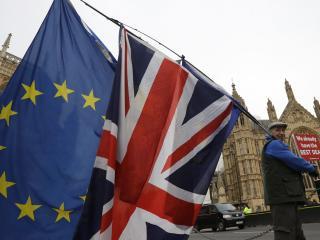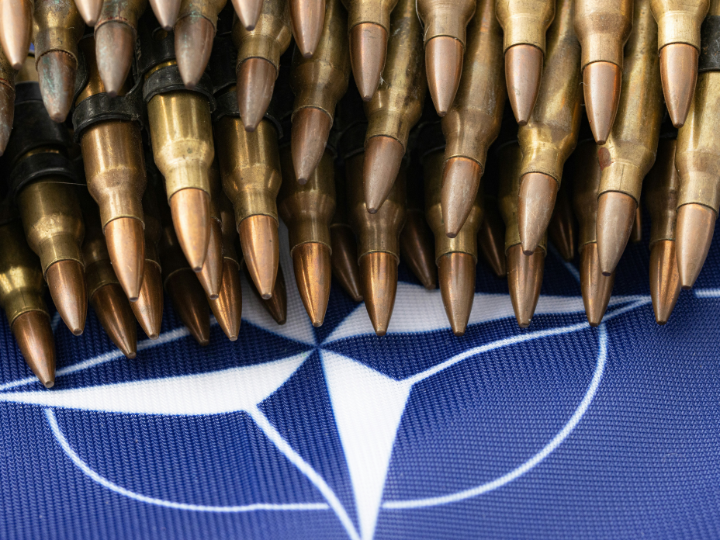The world is watching Brexit – and concern over Britain’s uncertain future is sharpest in Asia. Asian leaders and businesses are uneasy over Brexit chaos and as they wait and worry many are moving fast to reinforce ties with an increasingly attractive Europe

Europe can work with Asian countries – like and unlike-minded – to salvage and reform parts of the multilateral system which have served everyone so well for the last 70 years, including the World Trade Organisation and, specifically, its Appellate Body and the Dispute Settlement Mechanism. Constructive proposals proposed by the EU could form the basis of a revamped and more inclusive global trade system.
By
Shada Islam*
The world is watching Brexit – and concern over Britain’s uncertain future is sharpest in Asia.
Asian leaders and businesses are uneasy over Brexit chaos and as they wait and worry many are moving fast to reinforce ties with an increasingly attractive Europe.
Asian consternation over Brexit is not surprising. Governments and companies in the region have long leveraged their historical ties with Britain to get ahead in the European Union.
Asian diasporas wield strong influence in British politics, business and society. Asian students traditionally head to British schools and universities. London is every Asian millionaire’s preferred destination.
The strong ties prompted initial claims by Leavers that Asian nations would be lining up to do quick trade deals with post-Brexit Britain. It hasn’t turned out quite that way. Instead, Brexit appears to have spurred Asia and Europe to take a fresh look at each other. Since they appear to like what they see, Europe-Asia relations have a strong wind in their sails.
The year ahead holds promise for bilateral ties between the EU and Asian countries and joint efforts to tackle global challenges. That, at least, is the plan.
Take Japan. The EU and Japan opened talks on a free trade agreement about five years ago but discussions only really picked up when US President Donald Trump started upending the global trading system. Brexit also shocked Japanese businesses which had invested heavily in Britain, partially as a gateway to Europe.
Suddenly, last year at record speed, the EU and Japan signed up for a trade deal which will come into effect in a few days, creating an open trading zone of almost 600 million people. This will go hand in hand with implementation of parts of the EU’s broader Strategic Partnership Agreement with Japan, a deal which includes plans for enhanced security cooperation.
There’s also China. Unwilling to be drawn into the US-China trade and tech war, the EU is charting its own course for working with Beijing. This involves being tough on demanding improved access to Chinese markets, screening Chinese investments in Europe, but also expanding ties in areas of mutual interest, including climate change, urbanisation and Iran.
ASEAN is upping its game in Europe, as EU and ASEAN foreign ministers met in Brussels in January to signal they are ready for a strategic partnership and negotiation of an EU-ASEAN free trade agreement. The latter isn’t going to be easy given the array of irritants in EU-ASEAN trade.
There’s more: South Korea was first on the block to get a free trade deal with the EU several years ago and talks on similar agreements are ongoing with Australia and New Zealand.
Which brings us to India, arguably the most challenging of all of Europe’s Asian partners. A new EU strategy on India released last year spotlights the EU’s increased interest in India and aspirations for stronger cooperation.
Although the EU blueprint does not say so, EU-India relations have stagnated for more than a decade over provisions of a Bilateral Trade and Investment Agreement which both sides say they want, but can’t agree on. In order to get EU-India cooperation off the ground, Brussels and Delhi must take the difficult decision to ditch the trade deal and focus on at least securing an investment agreement.
So where does that leave us in terms of Europe-Asia relations? There are multiple avenues for walking the talk on cooperation.
First, Asia and Europe must start serious discussions on reforming global governance. Trump’s retreat from America’s international commitments has dealt a strong blow to the multilateral rules-based order.
But Europe can work with Asian countries – like and unlike-minded – to salvage and reform parts of the multilateral system which have served everyone so well for the last 70 years, including the World Trade Organisation and, specifically, its Appellate Body and the Dispute Settlement Mechanism. Constructive proposals proposed by the EU could form the basis of a revamped and more inclusive global trade system.
Efforts should also be made to multilateralise ongoing national and regional discussions on connectivity on the basis of new EU proposals on governance, sustainability and transparency. The need for more and better connectivity, especially for infrastructure, is universally recognised.
And while it gets the most attention because of the amount of money involved, China’s Belt and Road Initiative isn’t the only connectivity show in town. Others, including ASEAN, have been in the game for many more years. Japan, India and Europe have a similar interest in increasing connectivity. But all these projects operate under different rules and standards, leaving many countries confused and unsure.
Moreover, Asia and the EU should join forces to implement Agenda 2030, with a special focus on eliminating inequality through an intensified focus on women’s empowerment especially through the education of girls.
Finally, Europe and Asian countries should pay more attention to ASEM, the platform for Asia-Europe Meetings, set up in 1996 to enhance bilateral relations. The successful ASEM summit held in Brussels in October 2018 is testimony to the fact that the forum is increasingly relevant given current geopolitical transformations. Interestingly, while “Eurasia” is not mentioned, ASEM contact is proof of increased integration and connections between the two regions.
The suggestions above are by no means exhaustive. Enhanced EU-Asian cooperation will require a change in mindsets in both regions. Old-fashioned and outdated concepts and stereotyping will have to change on both sides, replaced by a new, more inclusive approach.
There will have to be uncomfortable compromises, more give and take, more listening to each other, less talking past each other. Coalitions will be built more around shared interests despite disagreements over values.
Brexit and Trump are not the only reason for the re-ordering of Asia-Europe relations although in most cases, they have certainly accelerated the process. Headwinds lie ahead as both regions brace for upcoming elections and possible leadership changes. For economic and geopolitical reasons, however, it would be wise to stay the course.
*Director of Europe & Geopolitics at Friends of Europe




 By: N. Peter Kramer
By: N. Peter Kramer
